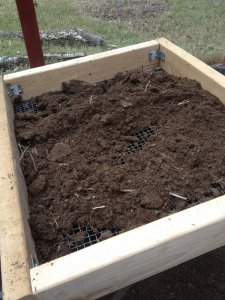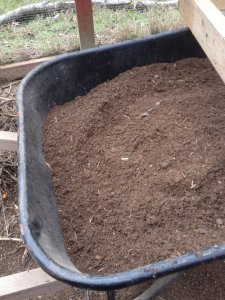ChickenMomma91
Deeply Rooted
The past few years I've tried composting in a 55 gallon plastic barrel. It didn't work out very well, it was hard to stir and got kinda yucky in the bottom. Things decomposed quite well but you had to tend it every couple of days. So I finally scrapped it at the end of this past season, I dumped what I had on the gravesite of my semi failure of a SBG along with the cleanings of my chicken coop (I only scoop everything out 2-3 times a year) and then tilled the heck out of everything and laid black plastic mulch on top to keep it well heated. so since about Halloween my garden has been put to bed in a sense.
I plan to rebuild my composting plan, making a new compost bin out of an old pallet I've yet to accuire with plenty of ventilation through the slats and a semi enclosed base. my main question is what should I NOT put in the compost, I know now 'diseased' plants and such but I had so tomatoes I lost to blossom end rot, I caught it warly for the most part and clipped them off at the branch then tossed them into the very back of my yard possibly landing in my neighbors (whoops) so the nones I found were removed quite far from my actual garden but could I compost those? Or the cucumbers that had issues?
I plan to rebuild my composting plan, making a new compost bin out of an old pallet I've yet to accuire with plenty of ventilation through the slats and a semi enclosed base. my main question is what should I NOT put in the compost, I know now 'diseased' plants and such but I had so tomatoes I lost to blossom end rot, I caught it warly for the most part and clipped them off at the branch then tossed them into the very back of my yard possibly landing in my neighbors (whoops) so the nones I found were removed quite far from my actual garden but could I compost those? Or the cucumbers that had issues?


